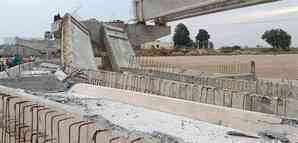Higgs boson may decay directly into fermions
London, June 23 (IANS) For the first time, scientists from the CMS experiment on the Large Hadron Collider (LHC) at CERN have succeeded in finding evidence for the direct decay of the Higgs boson elementary particle into fermions. Previously,...

London, June 23 (IANS) For the first time, scientists from the CMS experiment on the Large Hadron Collider (LHC) at CERN have succeeded in finding evidence for the direct decay of the Higgs boson elementary particle into fermions.
Previously, the Higgs particle could only be detected through its decay into bosons.
"This is a major step forward," said professor Vincenzo Chiochia from University of Zurich whose group was involved in analysing the data.
"We now know that the Higgs particle can decay into both bosons and fermions, which means we can exclude certain theories predicting that the Higgs particle does not couple to fermions," he said.
As a group of elementary particles, fermions form matter while bosons act as force carriers between fermions.
According to the standard model of particle physics, the interaction strength between the fermions and the Higgs field must be proportional to their mass.
"This prediction was confirmed... a strong indication that the particle discovered in 2012 actually behaves like the Higgs particle proposed in the theory," said Chiochia.
The researchers analysed the data gathered at the LHC between 2011 and 2012, combining the Higgs decays into bottom quarks and tau leptons, both of which belong to the fermion particle group.
Three different processes were studied, whereby the UZH researchers analysed the Higgs decay into taus.
Because the Higgs particle is extremely short-lived, it cannot be detected directly, but rather only via its decay products.
The bottom quarks and taus, however, have a long enough lifetime to be measured directly in the CMS experiment's pixel detector.

 cityairnews
cityairnews 
















